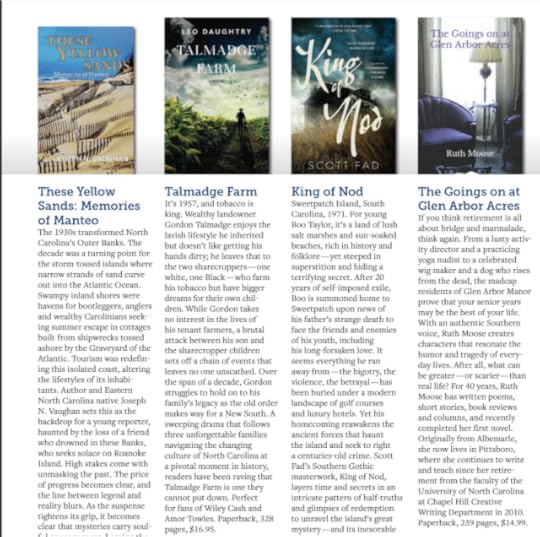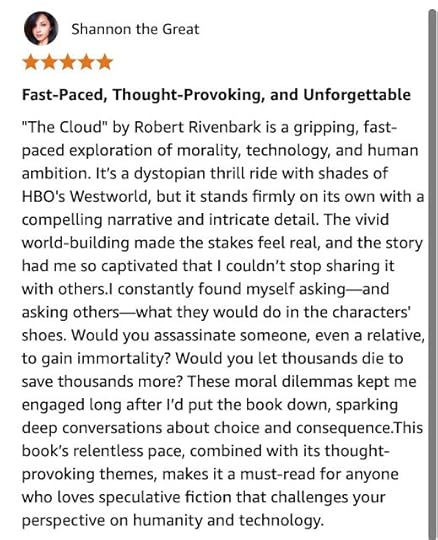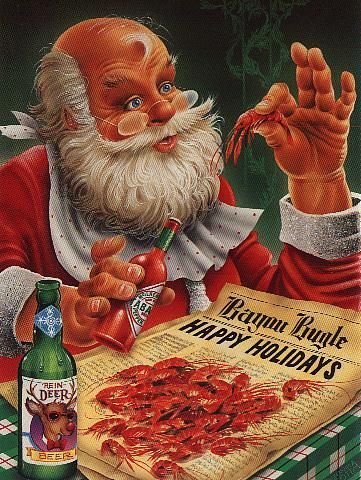Kenneth Atchity's Blog, page 10
January 8, 2025
Carolina Country Features Leo Daughtry's Talmadge Farm on its Book Shelf Page!
January 6, 2025
NEW FROM STORY MERCHANT BOOKS
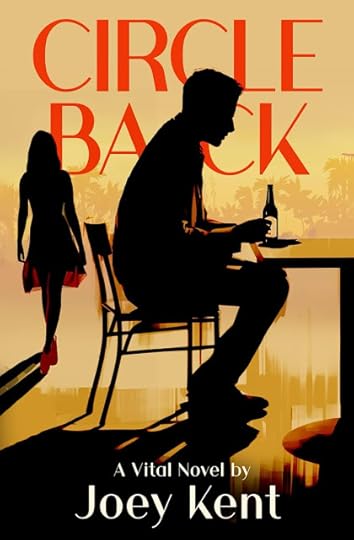
AVAILABLE ON AMAZON
What would you do for a second chance with your first love?
Kenzie Church found true love young and lost it all. Since then, he’s lived a quiet life of deprivation and self-denial. In this poignant romance, he’s offered a second chance with his first love. Will he circle back? And if he does, will Maezie be there waiting?
•••
Hello, my friend. I got a message that you need me.
Maezie’s carefully crafted response to the voice message I’d left had been a classic understatement, for I’ve never stopped needing this woman. And she’d texted me back. Hot damn! Game on.
I don’t linger over the specifics of this spur-of-the-moment intercourse. I get where I’m coming from—fresh from being dumped by my wife of eighteen years who, if I’m being honest, was way too young and finally decided to trade me in for a more age-appropriate model. But I wonder what’s what in Maezie’s world.
My mind unlocks a long-forgotten memory to connect the dots. I’m maybe six years old and messing with a box of kitchen matches in the woods behind my house. My best friend, Mark, and the O’Haro brothers are with me, and we think it’s a good idea to set ablaze the pile of dried leaves we’d grown weary of jumping into. The cute, little glow quickly explodes into a raging fire, and we run away frightened, leaving Mother Nature to solve the problem.
Have I lit another careless fire?
Will I run from the consequences once more?
Instagram review by @LaurensLiteraryLifestyle: “Written in well-thought-out and lyrical prose, this is a story about knowing in your bones who your soulmate is and the obstacles you have to overcome to find your way back to them. ‘I was a boy charged with making the decisions of a man. I failed that man, and I failed you.’ And this is a hopeful story. One filled with missed chances and bad timing but hope that love can triumph over the mistakes of the past.”
Author’s Note:
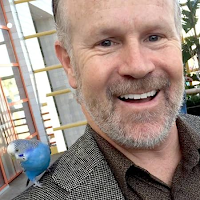 Circle Back is a very personal story for me, inspired by my first foray into serious romance during my college years where one of the tenets of my fraternity was the saying “A pearl of great price is not obtained merely for the asking.” I have never forgotten that saying or the woman who is my Maizie and who remains that pearl of great price.
Circle Back is a very personal story for me, inspired by my first foray into serious romance during my college years where one of the tenets of my fraternity was the saying “A pearl of great price is not obtained merely for the asking.” I have never forgotten that saying or the woman who is my Maizie and who remains that pearl of great price.In the recent aftermath of being served divorce papers, I was sifting through the remains of my self-worth, and that examination led me back to my college love. She’d encouraged me to keep a journal, which eventually became the framework for Circle Back.
Last year, I was just beginning to settle into the dream of writing historical fiction when my amazing editor, Lisa Cerasoli, seized upon the sample of Circle Back I’d attached in an email as an afterthought. Lisa’s encouragement led to the completion of this vital novel and contributed significantly to my own recovery.
Social media is full of conflict, and much of the content we view on television and in the theater thrives on it, so with Circle Back, I set out to chain together all the beautiful stories of my youthful romance to offer some balance to all the gloom and doom out there. Love can be beautiful, and it can be sustainable. I hope you find this story uplifting and maybe one or more of you will be inspired to circle back for that pearl from your past. Anything’s possible…if you believe.
You’ll see.
January 2, 2025
Read an Excerpt from Martin Ott's The Interrogator's Notebook

AVAILABLE ON AMAZON
“It is better to know some of the questions than all of theanswers.”— James Thurber
LESSON 1
Mapping the Body
In the beginning, there was not God.There were men who questioned the nature of the universe. Theseproto-interrogators did their jobs too well. Bold answers danced to life fromtheir imaginations. The best stories became religion, and these “truths” werepassed down through the ages.
ManyGods were created. Many more questions were asked. Scientists queried time,matter, and space. Explorers probed worldly limits. Philosophers wondered ifhumanity existed. Only interrogators mapped each man, unearthing the savagebeauty within us, each truth a work of art.
Inthe beginning, I was not much of an interrogator. I was still uncomfortable inmy man suit and did not yet appreciate the skill involved in harvestingsecrets. I was the youngest in my training platoon—still seventeen—on thedesert landscape of Fort Huachuca, Arizona, a place as alien as the moon aftergrowing up in a small town in Michigan.
Ourfirst training assignment was navigation. We were told that interrogators needto be more certain of terrain than an Army scout. After you convince yournervous subjects to open up, you chart their course backwards through time andspace to find their comrades, tanks, supply lines, and commanders.
Battlescould be won or lost based on an interrogator’s ability to navigate. I rememberracing with other trainees to find checkpoints in the heat and dust, armed witha compass, canteen, and plastic-coated maps. I always made sure to finish nearthe front of each race, choosing teammates with the smarts or speed to give mesome advantage.
Thisexercise taught us how to read a map at a glance, sideways, upside down, and inthe dark. That way, when we culled the location of enemy units and compelledour prisoners to jab at the map with dirty fingers, we knew where to send astrike team. After a few weeks of navigation, each set of swirls on the map,each hilltop was as unique as a smudged fingerprint. A ridge could be ashivering spine. A valley was as distinctly endearing as a scar between thenose and cheekbone. A dry riverbed might be a vein leading to the heart of thematter. The real lesson, of course, was learning how to map the body.
Myown body was changing under the strains of a military regimen. I was voraciousand could not get enough food in the mess hall, and I was too keyed up tosleep. We poured into the barracks each night like fish spawning over falls. Islept with every female interrogator in my class who let me, beginning with abrunette who climbed on top of me to lose her virginity and ending with alonely redhead who stole my phone card to call her boyfriend. I was learning tocontrol the world at a frightening and accelerating clip. I had a naturalintuition about people and a chip on my shoulder to prove my father wrong.
Mytime in the Army was filled with war exercises, hobnobbing with commandingofficers and debriefing Russian defectors. I became a warrant officer at theend of my second term and decided to return to Fort Huachuca to teach—my lasttour stop before joining the CIA. I was cocky for someone yet to see battle; mypowers of observation were bayonet-sharp.
Icould tell which of my trainees were worth a damn just by handing out maps, compasses,and canteens. The best interrogators would size up their competition as much asthe environment. They were loners, even in a squad of smart alecks. By mysecond class, I had moved all navigation to nighttime exercises to raise thestakes and more easily separate those who were lost from those in control.
Onone exercise, I caught a pair of my students having sex. The yelps of the womanbetrayed them as her partner in crime thrust into her. She kept her arms in apush-up position against a tree to keep her helmet from banging into the bark.They saw me step into their clearing as they finished and pulled up theirpants, racing off before I could confront them. I was left with a conundrum:inform the military or let it go?
Inthe end, I left it up to fate. I informed my training platoon that two of themhad broken the code of military conduct and that they needed to interrogateeach other until the offenders were revealed. It took two weeks and a few hintson my part, but the man finally broke down and confessed. He was transferred toan infantry platoon, and my commander commended me on my using them fortraining purposes. The woman went AWOL and I never heard what happened to her.Perhaps she was caught when she came out of hiding to attend college, bemarried, or obtain a credit card, or she stayed off the grid forever, a ghost.
Inever questioned my decision until I had sons of my own and thought about how ayouthful mistake could change the course of a life, or several lives. Truthwas, I had been arrogant, a victim of my cleverness. This woman would not bethe last person whose life I ruined as an interrogator.
*** *** ***Norman Kross lowered his pen andfastened the clasp on his leather journal. He’d begun the memoir, TheInterrogator’s Notebook, out of boredom. His early entries seemed more likeDear Diary confessions, the jagged letters hooking stunted truths and lettingthem writhe onto the page. Maybe he was just going crazy with aonce-distinguished career now in the crapper.
Howthe hell did he, of all people, end up on the wrong side of the table?
Therickety metal chair bit into his back as he studied the room’s exposed pipes,peeling paint, and windowless interior. A damp smell reminded him of combatboots after a day of humping through the brush. A yellow pad of paper andballpoint pen sat on a small folding table, prompting him to write aconfession. He’d been captured in an American museum with a French passport, adiagram of the entrances and guards, and a packet of C4 residue. He was screwed.Big time.
Hewanted absolutely nothing to do with the man who shoved the door to the room sohard that it ricocheted and slammed against the back wall.
“Thisis Rick—your worst nightmare,” the guard outside called out.
Atall, muscular interrogator strode inside with the door quivering and shot hisprisoner eye daggers. This was the Silence technique, one that Norman had usedto great effect many times, though the knowledge of it did not help him. Hisskin spilled sweat as though sliced, and wetness filled him inside and out.
Fifteenminutes later, a second agent slid into the room—female, more commanding, witha feral look in her eyes. She placed a mug of steaming black coffee on thetable.
“Nowyou’ve gone and done it,” Rick taunted.
“Thisis a mistake,” Norman said. Who knew what these two were capable of?
“Onlyif you don’t talk,” the woman said tersely. “I’m Gretchen.”
“Ihave nothing to say. I was framed.”
“Thenthere’s no hope for you,” Rick said.
“Ifyou talk to us, I might be able to get you a lawyer instead of sending youoverseas to a prison you’ll never get out of,” Gretchen warned.
“Whatwas your target?” Rick pressed.
“Youdon’t scare me,” Norman said. “I have rights.”
Rick’sfist pounded the tabletop and overturned the mug. The hot coffee funneled alonga groove toward Norman’s seat.
“Don’tyou even think about moving!” Rick commanded, pounding his fist. The coffee’scourse along the scarred varnish surged forward. “I’ll set fire to you like youterrorists did to the World Trade Center.”
“Ican’t control him,” Gretchen said. “He lost his brother on 9/11.”
Normanstared at the expanding black puddle, which threatened to pull him into thedarkness. Was this what he deserved for the questionable things he had done asan interrogator? His hands started to shake.
“Whothe hell do you work for?” Gretchen asked.
“It’sa nice day for a barbecue,” Rick said.
“You’vegot to help me help you,” Gretchen almost pleaded.
“You’llburn in hell.” Rick sneered.
Thefirst drips of coffee dribbled onto his pants. Rick picked up the table end andslammed it to the ground again and again. Norman knew that they were beingmonitored, but a shiver still went down his spine. These two were on the vergeof getting out of control.
Rickgrowled, lifting the table as high as he could. The hot black stream flowedonto Norman’s lap and he whimpered. Rick let go, and the table came crashingdown.
“Lastchance. Who do you work for?” Gretchen barked, her nose inches from his.
Normanburst out of his chair and swooped up the pen from the puddle on the floor,where it had fallen. He gripped it like a knife and propelled himself towardRick, his flushed face now ashen. Gretchen shrieked. Norman stabbed down at thetablet on the floor as he carved out the name of his cell leader.
Thepuddle of coffee drenched his knees, and he wailed as though he had lost a son.He stared up into the camera and milked every moment for the group of studentinterrogators. He wanted them to face their fears and themselves.*** *** ***“What the hell do you think you weredoing in there?” Kevin Vail admonished as though Norman were a naughty studentin their basic interrogation course.
Normandid not look up from the desk given to him by a former ambassador to Russia.Instead, he calmly addressed his fellow instructor. “Kevin, please come in andtake a seat.”
“Iasked you a question.”
“OK,then. Stand if it suits you.”
“Iwill.”
Finally,Norman cocked his head and almost burst out laughing. His agitated colleaguerocked on the heels of his cheap leather shoes. Everything, from his lankybuild and pasty skin to the eye rings and cheap haircut, was the result of toomuch time indoors with men serious about the wrong things. “Don’t you thinkthis is funny?”
“Whatare you going on about?” Kevin was one of those Anglophiles who mixed in lingowith decidedly American pronunciation.
“Howpoorly you’re interrogating me,” Norman said matter-of-factly. “Of all people,you should see the irony.”
“I’mtrying to have a conversation, mate. I’m trying to do my job.”Hisjob. What was that exactly? They both taught workshops for a corporation calledNight Guard that provided training for private armies, security guards, andinterrogators. Although the name might very well have been used for an underarmdeodorant or feminine hygiene product, their services were no joke. The“teachers” doubled as elite squads that could be purchased for the right priceand with complete anonymity.
“Doyou think I might have a second career as an actor?” Norman asked.
“Jesus,you’re daft,” Kevin spouted angrily. “The protocol is there for a reason. Can’tyou take this seriously?”
Normanturned his sea-green eyes, inherited from his Norwegian mother, toward Kevin.“I’m deadly serious.” His father had always had called them witch eyes, andNorman knew they were a weapon in his arsenal. The two men pushed theireye-bulbs into each other’s grill, and disdain radiated from Kevin’s face. Whocould blame the guy? Norman was being an ass. No wonder so few of the staffliked working with him.
Kevinblinked first. “I’m going to have to report this incident.”
“Isthat what this is about?”
“Asinstructors, we have an obliga—”
Normancut him off. “Were you scared for me?”
“Scaredof the paperwork I’d have to do if you got in a tussle.”
“Ora donnybrook,” Norman teased, but it went over Kevin’s head. The blowhard wascompletely unaware of how odd the English expressions sounded in his residualBostonian accent.
“Thisisn’t funny, Norman. What do you think Lawrence would do to us if we got sued?”
“Tome … nothing. He has insurance,” Norman said carefully. “And me for a friend.”
“Areyou threatening me?”
“IfI were threatening you, Kevin, it would be more serious, such as, I know peoplewho could make you disappear off the face of the earth.”
“You’rea real bastard. This isn’t a game.”
“Itisn’t?” Norman dipped his pen into a chipped mug labeled “World’s GreatestCad,” a white elephant holiday gift he received not long after he’d joined thestaff. Maybe it was from Kevin. “You mean there aren’t winners and losers?”
“People’slives are at stake here.”
“Exactlyright. Which is why I’m trying to push these trainees hard now, so they won’tmake mistakes down the line.”
“Youmean, like the mistakes you’ve made?” Kevin asked.
“Who’sthe bastard now?”
Kevindidn’t answer; he just gave Norman a self-satisfied smirk, turned on his heels,and left him in his office to brood. What the hell? This was no way forinstructors to act. Maybe Norman was damaged goods after being an interrogatorfor so long and was lashing out from his frustration with teaching others withfar less talent. He’d heard the typical stories of athletes and artists, onceat the top of their professions, who viewed teaching as a shared form oftorture. He knew he was a difficult man in the best of times, and his currentmoodiness was becoming a burden to everyone around him.
Hisbombshell Russian wife, her volatile violinist father, and his two headstrongsons stared at him from their framed family holiday photo. What did it sayabout him that he wasn’t in it? He could easily chalk it up to traveling onbusiness, but this year that would no longer be the case. Did his family likehaving him around now that he wasn’t traveling to the four corners of the globedissecting the truth for agencies with capital letters for names and lengthytitles and operating procedures?Deathstill surrounded him, even in retirement. He felt the presence of HowardHughes, whose ghost watched over the building rented from the millionaire’slong-dying company. Norman paced over to the window and swept his hand along awall with lead shielding. His workstation was formerly used to develop militaryhardware and was designed to block Soviet spy gear.
Helooked out over the Boeings, Raytheons, and space weapons facilitiessurrounding the airport in southwestern Los Angeles in a nexus of concrete andspidery overpasses. Smoke spewed from the oceanside oil refinery and watertreatment facility in nearby El Segundo. Businessmen descended from airplanesat LAX into a wasteland of dilapidated strip bars and aging Cold War complexeswith windows sealed to prevent the downtrodden from jumping.
Hespritzed Rogaine onto his scalp from a canister he kept behind AF Manual 64-3,which outlined survival behind enemy lines. He patted the moisture into hisbalding blond mop and returned the plastic container to its hiding place. Hedid not need the window’s reflection to know that his close-cropped cut hid thetinge of gray around his ears, or that the gel formed a helmet of hair todistract from the thinning, or that his boyish good looks now stood on anunwatched precipice. His retirement had driven him to odd quirks and adiscontent unlike any he’d known since boyhood in Alpena, a town known for its cementplant, the syrupy stench from the wood pulp plant, and drunken fathers.Hestrolled out to reception, knowing full well that Lawrence had already left hima cryptic message on his cell last night about meeting for happy hour. This wasjust for show, as Kevin sat out in cubicle land, within earshot.
“Norman,Lawrence wants to confirm tonight’s appointment,” Andrea said. Their currentadministrative assistant was an anorexic workout addict who dated one of thesecurity squad members on the lower floors.
“Where?”
“TheOrient Express at six. You’re going to have to give me the skinny on that placetomorrow.”
“Why?”Norman asked, watching Kevin rustle across the aisle in his cramped workstationwith a sliding glass door like a cheap motel shower.
“Becauseeveryone wants to get in that place, silly. You have to be an A-lister.”“SoI am,” Norman said, winking first at Andrea and then at Kevin as he made hisway to the first of the metal detectors and checkpoints in the facility. Whenit came to security or secrets, Lawrence Michaels just wasn’t fucking around.
*** *** ***Of course, Lawrence was late. Normanshifted uncomfortably at a corner table in the Hollywood bar—a spot he’d chosenso that he could people-watch—and took in his surroundings. The Orient Expresswas austerely outfitted with train paraphernalia and photographs oflocomotives. The tables were bench style, with shiny vinyl checkerboardveneers. Light fixtures spaced at regular distances beamed eye darts at himfrom the reflection in the room-length bar mirror. Liquor bottles were stackedalong the gleaming oak shelves so evenly, reminding Norman of tiny soldiers information.
Theowner, Phil, tended to his customers personally and mixed drinks that hethought they should have—never what they asked for. This was part of the OrientExpress’s mystique. It was infrequently open and almost impossible to get intoand you could not choose your own poison. This combination had caused Phil totoss and blacklist more than one celebrity who took umbrage with theirpreselected cocktail. Beer and wine were not even options.
Norman’sdark Puerto Rican rum and Coke was hitting the spot, and he had appreciated theRusty Nail Phil had made for a pair of bra models, as well as the owner’sassertion that it would put hair on their chests. He was convinced that hewould have recognized more of the clientele if he were interested in more thanjust the news, science, and history channels on television.
Footstepsapproached the table, the staccato rhythm of leather shoes signaling expensivebodyguards. This could only mean one visitor—the owner of Night Guard, a ColdWar author who had reinvented himself as a patriot the same way Norman hadtried to as a teacher. Lawrence Michaels appeared in the main bar as an opticalillusion, filling the doorway at distance with his six-foot-five frame. Hisshape was vaguely oval but not flabby, built up by a cadre of personal trainersand rounded by his indulgence in French cuisine, Spanish wine, Cuban cigars,and all-night poker binges. He dressed himself in multipiece suits like combatarmor, his impressive height and girth gliding through the world like one ofthe vessels he wrote about in his once-famous military suspense novels. Andjust like those dramatic atomic submarines or battleships, he had the potentialof leaving wreckage in the wake of a legendary temper.
Lawrence’spress was often blown out of proportion. Norman appreciated his boss’s quickwit and self-deprecation enough to overlook his boasting and moodiness. Lawrencewas an honest jackass, at least, which meant a lot to someone who had spent acareer hammering away at subterfuge. They had a friendship based on mutualadmiration, hidden pains, and bruised egos they smoothed over with boasting.Lawrence instructed his bodyguards to fish him a drink and joined Norman at thetable.
“Howare the memoirs going?” Lawrence asked.
“I’mnot certain if they’re memoirs or a how-to book.”
“Onhow to be a son of a bitch?”
“No.Those would be your memoirs.”
“IfI ever wrote them, I think they’d have to label it fiction.”
Normanlaughed. “We all lie to ourselves.”
“Perhapssome more than others,” Lawrence said. “Perhaps us more than most.”Nowherewas the distinction between truth and lies more blurred than in Hollywood.While the political maneuvering behind the conflicts Norman had worked inbehind the scenes came a close second, it was second nature in entertainment tobuild a story that cast the teller as hero in a tale of his own control. Thisillusion was based on the fickleness of fame and connections with othersseeking the same. That did not mean the drama was any less real.
Atthe bar, a haggard scarecrow of a man intercepted Lawrence’s cocktail andwalked it over. His eyes were like a cup of strong coffee drained too manytimes through the same filter. His salt-and-pepper beard, slow movements, andblack suit and tie made it seem like he was in a black-and-white film fromanother era.“Hello,Lawrence. Hope you like White Russians,” the man said with a voice like a kettledrum,measured and deep.
“Owen,why don’t you join us?”
“Fancymeeting you here,” the man said, his tone rising even as he lowered his bodyinto a chair. Owen clutched a bulging manila envelope in his right hand the wayhe would a child’s hand when crossing the street. It was clear that this was nochance meeting. Lawrence had staged it. Owen’s puffy eyes, bruised voice, andmedicated movements hinted at someone in mourning.
“So,Lawrence, are you going to cut to the chase and tell me who it is you want meto interrogate?” Norman asked, downing his drink and letting the warmth fillhis belly. “Your friend needs help—the kind men like us provide.”
Witha shaking hand, Owen slid the envelope over to Norman. “He’ll do.”Lawrencebeamed proudly. “I told you he’s the best.”
“He’sgoing to have to be. The police cleared that bastard of all charges.”
Normanalready had a few questions but knew that he had to tread carefully.“Hisdaughter’s name was Natasha Arnold,” Lawrence said softly. “And he thinks—”
“Theasshole killed her. Somehow. I don’t know how.”
Normanrecalled the news coverage from that infamous Fourth of July party, where thedaughter of famous horror director Owen Arnold had been found floating facedownin a character actor’s pool.
“Theasshole is George Stark,” Lawrence said. “We want you to interrogate him.”
There it was—a name like a superhero in hiding. Stark had been investigated andcleared of charges. The autopsy ruling had been accidental death from herhaving downed too many sleeping pills and drinks and then slipping into thewater from a poolside chair.
Owenlooked Norman over and asked, “Are you a parent?”
“Yes,”Norman said.
“Good.Then you’ll understand that no father should stay up at night wondering if hisbaby was murdered.”
Foronce, words escaped Norman. What do you say to something as raw as this?
Owenburied his forehead in his palm and muttered, “Thank you,” before stumbling tohis feet. The director shuffled outside, his monochromatic exit followed byother patrons who obviously knew him and his story. There was a buzz in theplace.
“Whythe stunt, Lawrence?” Norman asked.
“Ihad to find out for myself.”
“What?”
“IfMadrid had made you lose your edge,” Lawrence said.“Itmade me quit working as a freelancer, didn’t it?”“It’snot as bad as you think.”“Ithink a lot of people died,” Norman said.Lawrencepaused and took a long sip from his White Russian. “I’ve been told I haveexpensive tastes. I think you’re one of them.”“I’vebeen worth every penny, every peso, every ruble.”“Trueenough … in the past.”“Whatdoes that mean?”“Whatdo you think it means?” Lawrence shot back.“Don’tgo passive-aggressive on me when you’re aggressive-aggressive with everyoneelse.”“Jesus,Norman, aren’t you sick of babysitting yet?”“Youmean teaching? I told Vera that I retired from being an interrogator.”“Didshe ask you to stop?”“No.She asked me to be happy.”Lawrenceslapped his enormous hands together, and the clang from military insignia ringsechoed for dramatic effect. “She might as well ask you to be prince of thefairies.”“Ithink Peter Pan has that gig.”“Hmm.All that lad wanted to do was to thrash the bad guy and hang out with his posse… just like you will on your new assignment.”
“I’mtoo old for this.”
“Bullshit!You’re experienced, like me.”
Normanshook his head. “I messed up.”
“Stopfeeling sorry for yourself. This is the perfect rebound case for you. I needthis, Norman. I need to get back in with the Hollywood crowd.”
Lawrence’sspy novels had sold fewer and fewer copies, and none of the past several hadbeen made into films.
“Andyou need to send your boys to college,” Lawrence continued. “My instructors allhave to be working interrogators. You know that it’s the only way for us toland government contracts.”
Therewas no subterfuge here. Norman’s teaching gigs obviously came with strings,favors he would need to perform to keep the checks coming in.
“Youcan be a real dick sometimes,” Norman said.
“C’mon,it’s not like I’m putting you in a war zone. Besides, Owen’s a friend.”“Youmean you have friends not on your payroll?”
Lawrencechuckled. “That’s better. We’ll put that razor tongue of yours to better usethan on the poor students in class.”
“Youheard about my last session?”
“Kevincalled to complain.”
“Nosurprise there.”
“I’vegot your back if you have mine,” Lawrence said.
“Tellyou what: I’ll look at the case file tonight and give you a buzz,” Normanpromised. “In the meantime, would you do me a favor?”
“Whydo I have the feeling this is going to cost me?”
“Onlysomeone’s pride. Assign me as the lead workshop instructor tomorrow. I thinkit’s best to let Kevin watch a real pro at work for a few days until he getshis nerve back.”
“I’mglad I’m not your enemy,” Lawrence said and gave him a nod of affirmation. Hechuckled and pointed his callused index finger outward. A pen. A gun. Ahandshake. He poked his finger against the scar on Norman’s temple, which wasas intimate as the two men ever got.
Lawrencepulled a quill out of his coat, scrawled Norman’s name on the manila envelopein a spastic cursive, and slid it over. His boss had purchased the quill fromSamuel Clemens’s estate. The writing tool was out of place in the twenty-firstcentury. Norman couldn’t help but notice the similarities between them—theyboth were more comfortable with earlier times and quietly worried aboutimpressing others, even as they desired control over the world around them.Lawrence’s passion had moved his empire building from books to movies toprivate organizations like Night Guard. Norman’s own passion had become a lumpin his shoe.
“Callme tonight after you’ve read the dossier and get your groove back,” Lawrencesaid, finishing his drink, nodding at Phil, and heading for the entrance withhis bodyguards in tow.
Thefolder felt cold and unnaturally heavy. Norman could feel the obsession of anew case growing inside him, the dark seed taking root in the recesses of hisreptilian brain.
Lawrencedeparted with a salute, and Norman felt a buzzing in his pants pocket. Hepulled out his phone and examined the cracked face. Vera had texted him as sheoften did after work, when he got lost driving around Los Angeles,contemplating the serpentine existences inside those rolling metal cages.
Themessage was simple, without a smiley face or LOL. Two words: Game night.
*** *** ***Not even a home-cooked meal couldtake away the sting of the day, the argument with his fellow instructor, thedossier stashed in his safe next to his notebook, and the feeling that he wascarrying secrets with him that could spread like a virus to his entire family.How did he expect to be close to his wife and boys when he was locking a partof himself away?
“Whydo you always get to be Colonel Mustard?” Paul asked, the elder son pulling onthe frayed sleeves of the Mellow Felon T-shirt he wore everywhere to advertisehis rock band.
BeforeNorman could answer, his father-in-law, Ari the Elder, spat out, “Because he’sa military asshole!” from in front of the television.
Hisyounger son, Ari, snorted, even though he and his grandfather shared littleelse besides their names and the intensity of their expressions. Vera hissed ather father and passed out the Clue cards on the coffee table she’d collaged andvarnished that summer with old National Geographic and Smithsonianphotographs. Paul shared his cards with his girlfriend, Corazon, a Filipinopunk-rock princess who spent most of her waking hours with them. Norman didn’treally mind. Their two-story Spanish-style Silver Lake home had tall ceilingsand felt spacious even with his father-in-law bunking in a converted pantry offtheir sun porch.
“Areyou hungry?” Vera asked him, having noticed how he had picked at his lamb atdinner while draining several glasses of wine.
“Notwith you here.” Norman flirted even as three teenagers’ eyes rolled. Verasmiled, her mischievous eyes, full lips, and lithe body still taking his breathaway after two decades. They’d been introduced in the nation’s Capitol whenhe’d interviewed her father at the request of the NSA. The violinist had beencorresponding with a military relative in Moscow and had gotten flagged on arandom mail check. The letters back and forth were bizarrely coded, or elsegarbled in complex emotions. Ari was haughty throughout the lengthyinterrogation. He claimed that an accomplished artist should be above reproach.Vera, just home from Oxford, had been visiting her family. She served them tea,cracked jokes, and buffered the tension.
AfterAri was cleared of charges, Norman used her father’s seat in the DCPhilharmonic as an excuse to check up on him … and her. On their first datetogether, they ended up in bed. Vera told him later that she had confidedsecrets to him that night she’d never shared with anyone before—how she used tosneak peeks of her parents playing instruments without clothes, her firstsexual encounter with a famous conductor, the anger that had caused her to slapa former friend after the minx had stolen her boyfriend.
Togain her trust, Norman had shared private details about his own beast of afather, his boyhood in Michigan, his mother’s death, and the loneliness of hiscareer in intelligence. It was one of the tricks of his trade, and yet it washe who had been lost that night and the years following.
“Yourturn, moy volk,” Vera said, nicknaming him after the Russian animal thatmost suited him according to her mood. So now he was a wolf? Probably not toofar from the truth, as he rarely lost board games and was particularly skilledat Clue, which pissed off the boys to no end.
Normanrolled the bones and took in the game play. Out of habit, he took advantage ofhis location in the room. He leaned into the sofa with his back to the settingsun, which aimed knives of lights into the eyes of the other contestants. Hebarely listened to the idle chitchat about high school, Paul’s recenttriumphant gig, Ari’s even more triumphant play tryout, Corazon’s angry fatherwho swore in Taglish on her cell phone, Vera’s account of the close vote on theinternational cookbook of the month on her favorite new blog.
Corazonkept a close watch on his movements, but Norman had an advantage he wasn’tabout to share. Whenever his family made a guess and was shown a card, Normanobserved which quadrant of their checklist was marked. He also kept track ofthe pattern of guesses, which tended to tell which items had been crossed offtheir list. He could keep the details in his head as easily as those in adossier. Norman still retained almost total recall, an unfair advantage inmarriage, friendships, and board games.
Beforelong, he’d solved most of the puzzle. He knew that the blowhard Professor Plumhad hung his victim, but it took him a few turns to isolate where. When it washis turn, he stood and pronounced, “Professor Plum was a bitter man who one daytook his most promising student into his billiard room for a game. The youngman was so intent on aiming at the eight ball that he didn’t notice the ropesliding around his neck. The professor won his game, just like I have.”
Normansmiled as his exasperated family confirmed the results.
“Youcheated,” Ari said.
Verasighed. “Don’t be a poor sport.”
“Hehad to have cheated. Because I was cheating and I still didn’t beat him. Thereweren’t enough moves for him to narrow it down so quickly.”
“Luck?”Norman suggested.
“Lookslike you can be lucky in cards … and in love,” Vera said.
“Bull,”Ari said.
“Watchyour mouth, squirt,” Paul said, rubbing in the fact that he was not just older,a high school senior to the freshman, but that he was almost a full headtaller, broader in the shoulders, and more confident. Paul, although named forhis mother’s fisherman grandfather, looked more like his violinist grandfatherwith the sharp, dark features from their Russian-Jewish heritage. Ari was ablond-haired miniature version of Norman and his mother’s side of the family.Norman didn’t hit his final growth spurt until he was sixteen, so he had apretty good idea of the teasing that Ari must be getting—at home and in school.
“C’mon,boys, easy now,” Corazon mocked in a surprisingly apt imitation of Norman.
“It’spart of his strategy to make everyone fight,” Ari the Elder called out. “Lookat how often Vera and I argue.”
“That’sbecause you’re ungrateful,” Vera said.
“Don’tforget mean and ornery,” Norman added.
“I’dlike to change the game to something else,” Ari said. “How about Euchre?”
Normangrinned. He’d gotten his family hooked on the card game almost everyone in hissmall Michigan hometown played. They’d also adopted his penchant for fresh-pickedberries and beer-battered fish.
“Thereare too many people,” Vera said. “I can sit out.”
Normanrubbed her arm just above the elbow in a place he’d found drove her todistraction. “Let me. I have work to do for a lecture tomorrow morning.”
“Don’tlet him fool you. He just wants to sneak away to his man cave,” Ari the Eldermuttered.
Beforehe could get an earful from Vera, he grabbed the remote and turned up thevolume on a news story abuzz with reports of a subway bombing. It was El Mar,the Madrid terrorist group named after “the all-powerful, righteous, anddangerous sea,” or so their leader had said from behind a blue mask in thenow-famous videotaped recording. The group had taken responsibility for thesubway bombing beneath Plaza de España that had killed more than a dozensoldiers, police officers, and commuters.
Normanstood, mesmerized by the grainy image of smoke and debris, the horrified facesin the crowd, and the caption: Infamous Terrorist Group Strikes Again.Vera glanced at him worriedly, but he waved halfheartedly to his family to goon without him as he disappeared into his den.
*** *** ***
The floor safe in the den yawnedopen at Norman’s ankles. Inside was the dossier that Lawrence had handed him, TheInterrogator’s Notebook, a few old passports, and a Taser. He secretly keptthings from his family—that much the old goat Ari was right about—but what washe supposed to do? They would never understand the circuitous path to truththat he and his government sometimes traveled. The safe that stored his secretswas like a metal mouth, threatening to clamp on and never let go.
Hereached in past the tumblers, pulled out the manila folder, and slid a rubberband off a dossier that had been prepared by one of the topprivate-investigation firms in LA. He hadn’t completely lied to Vera; he didhave a presentation for his class tomorrow, but that preparation would have towait until he’d had a chance to plumb the case file.
Heexamined the heartbreaking photograph of Natasha Arnold. She looked like a paleangel floating facedown in the pool. No one knew who had snapped the photo orprovided it to the tabloids, but it was the most dramatic case Hollywood hadseen in years.
Thepolice had found Ecstasy, cocaine, and alcohol in her system. B-list actorGeorge Stark, who’d played the role of an annoying guy in a least two dozenmajor releases, had claimed ignorance of what she’d been doing throughout theevening. A grand jury had refused to indict him, even though Owen Arnold hadpressured the police to dig up more evidence. Accidental death had been thefinal verdict, and the case had been closed.
Normanpulled out the victim’s diary, a pink journal with Hello Kitty stickers,something a teenage girl might take to the mall rather than a chronicle of agrown woman’s final thoughts. Norman read a passage at random: George mademe feel like I wore an invisibility cloak. He would track me by the sound of myvoice and footsteps, but he didn’t recognize my body, even when he possessedit.
Natashahad kept a journal just like he did, and it was filled with a messy jaggedpain. Norman knew from these few words that he was hooked.
Hecalled Lawrence and asked, “What if the actor refuses to talk to me?”
“Thenyou’re not the interrogator that I think you are. Owen told me somethinginteresting about the guy that can help you.”
“What?”
“Asidefrom being a twisted prick, Stark has this delusion that he is aonce-in-a-generation character actor. He studies for future roles by spendingtime with deep, dark, twisted souls.”
“Areyou talking about me?” Norman asked. “How sweet.”
“Owenthinks this nut job will want to talk to you.”
Normanfrowned. “Why in God’s name would he do that?”
“Tosee how you tick. Not long before she died, Natasha told her father that Starkgot a kick out of mocking her with her own words.”
“Justabout every actor worth a damn in this town is crazy. Does Owen really thinkthat Stark is a killer?”
Lawrencepaused. “I don’t know. His daughter dated him for a while until he got a fewroles from her father’s connections. It wasn’t long after that that he dumpedher for some other starlet.”
“Ifbeing phony were a crime,” Norman said, “we’d be filming every Hollywoodblockbuster out of the state pen.”
“It’smore than that. Rumors on the set say this guy has a nasty temper.”“Butno police record.”
“That’swhy we called you in, Norman. Stark has an answer for everything—all of itglib. Owen wants to find out the truth, even if this bastard is beyondprosecution.”
“Thisisn’t about revenge, is it?”
“Whatif it is?” Lawrence asked. “You’ll do the right thing here. I have confidencein you.”
Thisconfidence was something that Norman used to share. He’d had a high opinion ofhimself stemming from a long string of successes and had been completely takenoff guard when his interrogation of the El Mar cell leader had gone south.Homeland Security thought that this prisoner would be the key to bringing downthe whole organization. The only thing was that Norman’s overconfidence had ledto the prisoner’s death and the US Embassy’s being blown up by a truck bomb thenext day.
Hecould have stopped the blast, saved those lives. His self-imposed exile hadstarted while on the flight home. Now Lawrence was asking him to put himselfback in the game. Sure, the risks seemed low enough. A father’s peace of mind …he probably had enough in him for that. Maybe he could find redemption for thefallen soldiers, his wreckage of a career, and keep himself together longenough to send his boys to college and retire with Vera in a style that she andher father were accustomed to.
“OK,you bastard. I’ll do it,” Norman said. “I’ll talk to the actor tomorrow. We’llprobably never know the truth if he clams up.”“Myfriend, I know you’ll succeed, no matter the obstacles.” Orthe cost . Norman hung up the receiver andbegan sifting through the pink journal and the remains of a young woman’s life.
LESSON 2
Confessions of an Interrogator
A secret as large as killing a manis difficult to keep. Sin is ingrained in us from childhood, even for those whodo not believe in God. So is redemption. One thing Americans love more thanheroes are rehabilitated heroes. Sure, we may whisk foreign citizens away tosecret prisons and torture them, but afterwards we recast ourselves as thepenitent warriors. For these acts, we confess our sins to the world and expecta second chance to present itself.
Aninterrogator’s confessional is more introspective and gradual. In the pages ofthis notebook, my past rises to the surface—first fin, then shark. Am I apatriot? A blunt instrument? Selfless or selfish? Before you cast judgment,first imagine what it is like to have the power to absolve men of sins or damnthem.
Partinterrogator, part clergyman, I wield forgiveness in one hand and a .45-caliberlightning bolt in the other. Like a priest, I am a conduit of a higher power,the pistols on the belts of my guards no less potent because I ensure that theyare unloaded. After all, it’s the symbol of damnation that I want. The similaritiesbetween a pistol and a cross are striking—both can be used for torture andkissed in an act of contrition.
Copyright © 2013 by Martin Ott. Allrights reserved.
No part of this book may bereproduced or transmitted in any form or by any means, electronic ormechanical, including photocopying, recording, or by any information storageand retrieval system, without the express written permission of the author.
January 1, 2025
New Year's Message From Kenneth Atchity
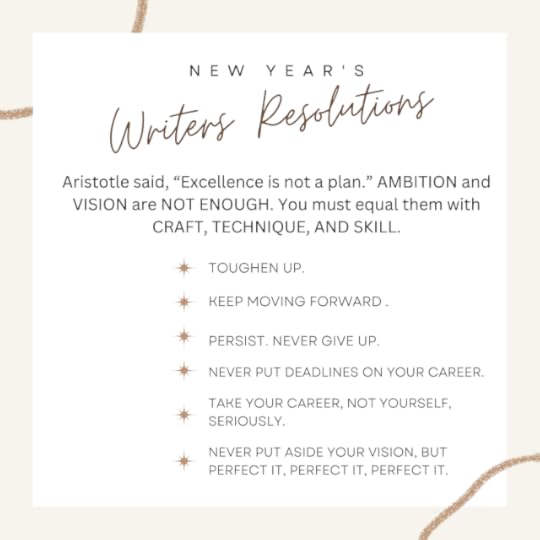
December 30, 2024
Story Merchant E-Book Deals: Martin Ott's The Interrogator's Notebook
#FREE December 30 - January 3!
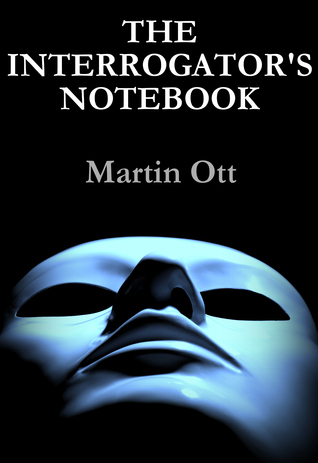
Story Merchant Books presents the debut novel Interrogator’s Notebook from prize-winning author and blogger Martin Ott. A former U.S. Army interrogator, Martin Ott uses his real-world experience and meticulous research in creating the character of Norman Kross, a master interrogator skilled at unlocking others’ secrets but blind to the truth of his relationship with his wife, sons, father and friends.
In the novel, Norman Kross is a career interrogator who has worked covertly in some of the most dangerous places in the world. It’s taken its toll, though. He returns to his Los Angeles home, contemplating retirement and coming to terms with his past in his Interrogator’s Notebook.
Floundering as a teacher, Norman agrees to take on one last assignment, to interrogate the character actor George Stark who may be responsible for the death of a director’s daughter. Armed with cunning, deceit and a deadly past, the actor poses an escalating challenge, and a terrifying threat to everything Norman has ever cared about.
For the author, the heated debate surrounding enhanced interrogation techniques and the role of the interrogator in protecting our national interests provides the backdrop to this crossover literary/suspense novel. But it is the personal life of a man pushed to the brink of his and societal moralities, and the choices he makes that is at the heart of this story.
December 27, 2024
Shannon Book Reviews on Robert Rivenbark's The Cloud
December 25, 2024
HAPPY HOLIDAYS!
December 23, 2024
Story Merchant Books E-Book Deal! FREE December 23 - December 27
FATHER CHRISTMAS: A TRUE STORY
by ROWDY HERRINGTON
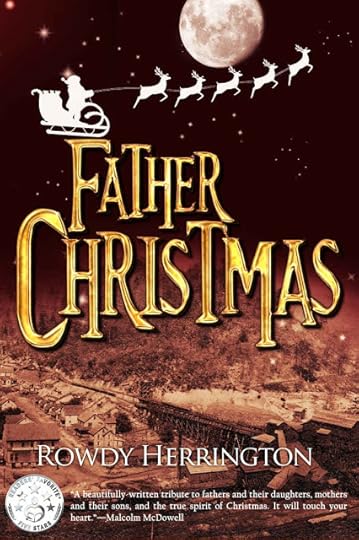
AVAILABLE ON AMAZON
Father Christmas is an unforgettable coming-of-age story that will bring families together with inspirational holiday cheer and nostalgia for the comfort of Santa Claus.
When Annie’s Father returns home from a long shift at the coal mine on Christmas Eve, Annie makes a life-changing discovery about who Santa Claus really is.
“A beautifully-written tribute to fathers and their daughters, mothers and their sons, and the true spirit of Christmas. It will touch your heart.”—Malcolm McDowell
"This beautiful family story makes me believe in Santa Claus." —Norman Stephens, former head Warner Television, Village Roadshow
"Herrington is a born storyteller. His skills are in full display here as he reminds us all, in the tradition of O’Henry, Dickens, and the Grimms, how the Christmas season can restore our faith in each other." —John Harrison, writer/director Frank Herbert’s Dune
December 20, 2024
ELLERY QUEEN’S MYSTERY MAGAZINE Features Dennis Palumbo's Fail Better
“Art is everywhere, except it has to pass through a creative mind.”
-Louise Nevelson

I have always been struck by this line from Worstward Ho, Samuel Beckett’s 1983 novella: “Ever tried. Ever failed. No matter. Try again. Fail again. Fail better.”
As a therapist and writer, I believe the wording sums up accurately both the clinician’s and the artist’s experience. It captures the struggles, uncertainty, and much-needed indefatigability of both professions.
Perhaps, more prosaically, this same sentiment was expressed by Albert Einstein. Once, when asked how he worked, he replied, “I grope.”
As I acknowledged in my book, Writing From the Inside Out, “Not an attractive word, grope. Sounds too much like lope, or dope, or mope. As an image, groping has associations with unpleasant activities like stumbling around in the dark, feeling blindly with your fingers, or enduring a series of false starts and wrong turns. It sounds unprofessional, almost haphazard, and too susceptible to the whims of luck and circumstance.”
I have taken the liberty of quoting from a book of mine, as well as from Einstein and Beckett, to preface my discussion of an issue that sometimes confronts clinicians treating a creative patient. Ensnared by anxiety while working on a difficult project, the patient often asks their clinician—sometimes only implicitly—for guidelines or a technique for addressing the new work’s problems, and so quelling the doubts and fears it has birthed. In my experience, such patients are not only looking for pragmatic suggestions for alleviating their concerns but need help coping with the shame they associate with having such difficulties.
In other words, and in the minds of many creative patients, real artists do not grope. They plan, reflect, ponder, conceptualize, synthesize, outline, embellish… create. Their work is the result of craft, inspiration, thought, and insight. To be blunt, a real artist knows what the hell they are doing.
This gnawing belief holds true for many creatives, whether writers, painters, musicians, or designers. It also holds true for many clinicians, whether therapists, psychologists, psychiatrists, or social workers.
In a previous column, I suggested that 1 of the root causes of procrastination is a fear of shameful self-exposure. In my view, a creative patient’s difficulties with a project, and their belief that there is some technique that offers a solution, evokes a similar shame. There must be a way to solve these problems, they think, and if I were a true artist, a real professional, I would know what that way is.
So much for, “Try again. Fail again. Fail better.”
I recall a session some years back with a writer patient struggling with the plot details of his first novel. He had published a few essays and a number of short stories, but working out the narrative issues of this complicated novel was seemingly beyond him.
“There must be some technique that every novelist knows,” he said plaintively. “Some rule. I guess I just don’t know what it is.”
Based on what we had explored previously about his childhood experience with a demanding and pedantic father, knowing (and the rules, facts, andexperience this knowledge was built on)was acore value in defining one’s worth—and thus one’s worthiness to be loved. (Reminding me of something I had heard during my years as a Hollywood screenwriter, concerning the actor Steve McQueen’s description of the only type of character he would play: “I’m not the guy that learns; I’m the guy that knows.”)
Given the similar ethos fueling my patient’s shame, my mentioning Einstein’s quote about groping did not do much to allay his concerns. So I tried to elaborate.
“I think what the quote suggests is that a professional person’s view of their work include in it the reality that all artistic effort, in a sense, is a groping toward something.”
“What the hell does that mean?”
“Let me put it this way: A writer like yourself, a real craftsperson, should know that the tools of creative preparation—plot construction, reflection on theme and content, an understanding of how to devise realistic characters—these tools have been developed for one reason only: to enable them to grope.”
I spread my hands, in an attempt to come off as less pedantic myself. “It’s only logical, right? The higher your skill level and experience, the more likely you are to break away from the known way of doing things. That kind of exploration has uncertainty built into it.”
My patient nodded. “That reminds me of something I read. What the cellist Pablo Casals said. ‘Learn the notes and forget about them.’ Are you talking about something like that?”
“Pretty much. It’s only when you reach a high level of competence that you’re finally able to grope. Like where you are with your novel. Given your past experience and talent, a new project like that only gets harder, not easier. You find that you’re demanding even more of yourself.”
“Lucky me.” He gave me a wry grin. “Well, shit, if it was good enough for Einstein…”
Sessions like these reveal how often creative patients fear Beckett’s notion of “failing better,” and yearn for models or guidelines, not merely to quell their anxiety but to counter the shame underlying it. Even veteran artists need the validation that confirms they “know what they are doing,” though the wisest among them know that is not the sole prerequisite for doing good work. That happy outcome requires risk, accident. As an actor patient once explained it to me, “Rehearse like crazy, then wait for the mistakes.”
In my 30+ years of practice, I have come to believe that what is true for my creative patients is true for clinicians. Too often we adhere to conventional dogma when it comes to treating patients, relying too readily on the dictums of diagnostic categories or the claims of personality theory. Knowledge of these things is crucial, of course, but since I feel that therapeutic work is both a science and an art, we have to be careful not to rely so much on the profession’s orthodoxy that we are blinded to the wisdom of our own instincts, the potential for our own unique approach to a patient’s issues. Which inevitably entails risk.
A book that had a profound influence on my thinking in this regard, written many years ago by philosopher William Barrett, was The Illusion of Technique. As the title infers, it is a ringing defense of creativity as a spontaneous reaction against the false sense of security promised by reliance on rigid structures, belief systems, and techniques.
In other words, a closed system of thought is a dead system. Equally true, I believe, for both creative patients and their therapists.
Again, an anecdote from Einstein’s life: when a student complained about his difficulties with math, Einstein replied, “Don’t worry about your troubles with mathematics. I can assure you mine are far worse.”
Another allusion, no doubt, to the reality of struggle, uncertainty—groping, if you will—as the price of any worthy creative endeavor. After all, as my author patient said, if it was good enough for Einstein…
December 18, 2024
AudioFile Magazine Reviews Leo Daughtry's Talmadge Farm Read by Justin Price
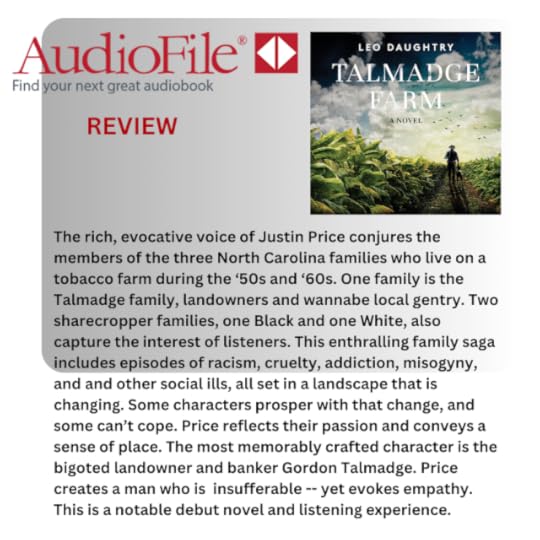
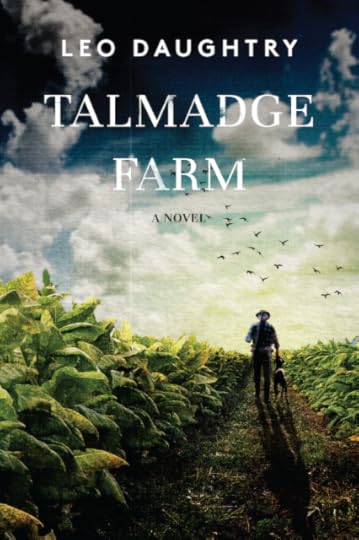
AVAILABLE ON AMAZON
"Talmadge Farm has often been described as a love letter to the South. Daughtry says, “Despite what the South has done and is doing, everybody loves the South. The South has a charm about it, and this book talks about the good parts of the South, how good the people are, and what the South has meant to so many of us… It’s a love story in many respects.”
It’s 1957, and tobacco is king. Wealthy landowner Gordon Talmadge enjoys the lavish lifestyle he inherited but doesn’t like getting his hands dirty; he leaves that to the two sharecroppers – one white, one Black – who farm his tobacco but have bigger dreams for their own children. While Gordon takes no interest in the lives of his tenant farmers, a brutal attack between his son and the sharecropper children sets off a chain of events that leaves no one unscathed. Over the span of a decade, Gordon struggles to hold on to his family’s legacy as the old order makes way for a New South.

